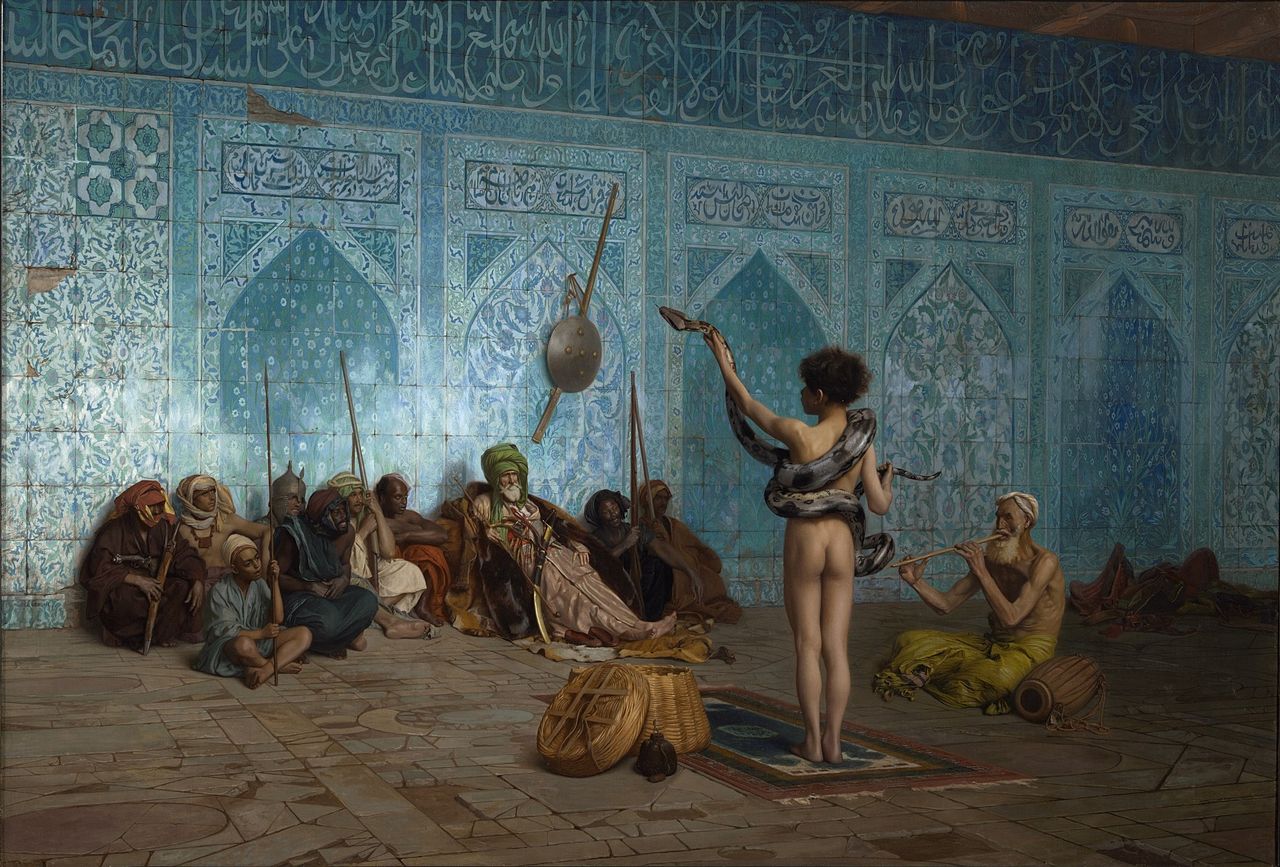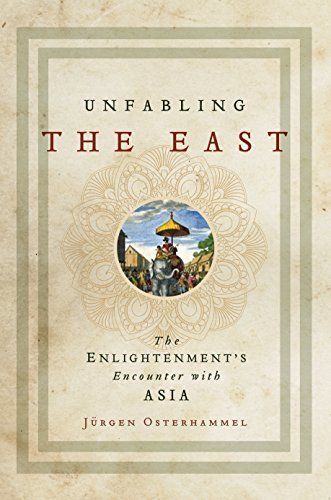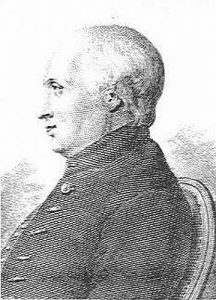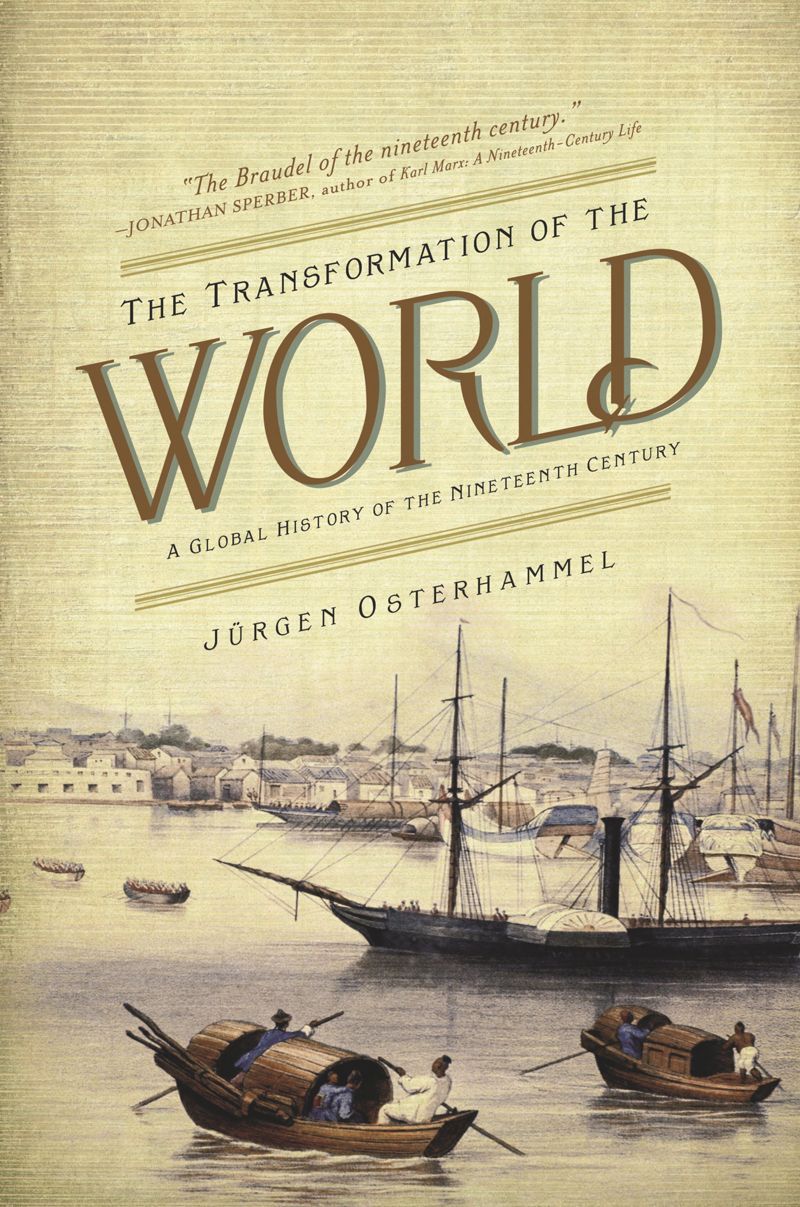Art
Unfabling the East—A Review
Unfabling the East is a brilliant new book by Jürgen Osterhammel that goes back to the original sources, and carefully reconstructs the evolution of European views of Asia.

A review of Unfabling the East: The Enlightenment’s Encounter with Asia by Jürgen Osterhammel (translated by Robert Savage). Princeton University Press (June, 2018) 696 pages.

Late nineteenth century Europeans were arrogantly certain of the inherent superiority of their civilization. Edward Said’s influential book Orientalism (1978) describes representations of the East as inverted projections of Western superiority. Europeans looked down on the East and created myths that flattered the supposedly more advanced and civilized imperialists. Said’s thesis is controversial, but there’s no question that headstrong imperialism was an intellectual force at the apogee of Empire. The problem is that the critique of representation has itself become dogmatic, losing sight of the diversity of historical sources and unable to reflect critically on its own practices. Postmodern critiques either accuse Europeans of ignoring difference, because they are blinded by universalism, or of the opposite: exaggerating difference and creating the stigmatised ‘Other.’ The diagnoses can be diametrically opposed, but the common theme is that Europeans’ prejudices render them unable to understand Asia.

Edward Said’s acolytes have become the new intellectual imperialists. The arrogant certainty of some contemporary critics has distorted scholarship. European texts are mined for signs of imperialist ideology, treated as windows to the authors’ souls, but neglected as accounts of the world. Unfabling the East is a brilliant new book by Jürgen Osterhammel that goes back to the original sources, and carefully reconstructs the evolution of European views of Asia. He finds that “the Enlightenment’s discovery of Asia entailed a more open-minded, less patronizing approach to foreign cultures than suggested by those who see it as a mere incubation period of Orientalism.” Osterhammel’s book is an oblique criticism of the Orientalism approach to intellectual history. After a blistering introduction criticising the scholarly field, he settles down to guide us through centuries of European thinking and writing about Asia. It’s a history of ideas rather than a critique of ideology, but its example serves as powerful refutation of Said’s school.
The ‘unfabling’ of the title captures the empirical process of overturning pre-modern myths. There was a long process through the Renaissance and Enlightenment of collecting travel reports and first-hand accounts of Asia, which were avidly consumed by the ‘thought leaders’ of the time. John Locke, for example, owned 195 travel reports. They were not studying Asia for its own sake, but to expand the scope of their ideas and universalise them. It was the source material for the new science. Enlightenment readers were “cleverer … than later theorists. Hungry for knowledge of other cultures, they chomped through forests of literature on Asia in order to give European historical, anthropological, economic, and sociological discourses as universal an evidential base as possible.”
Mining the work of the most famous philosophes for evidence of Orientalist thought misses the subtlety and variety of the Enlightenment. Osterhammel has unearthed rich source material that gives context to some of the more ‘Orientalising’ European texts. Montesquieu gave a rather deterministic account of cultural differences, but the Asia experts he read were often more balanced. Montesquieu represents Persia as narrowly despotic, with no room for statecraft and little sense of complexity. But one of his sources, Sir John Chardin, was subtle and sensitive to nuances, aware of differences between court and country and the exertion of human agency under different constraints. “Chardin emerges as the better sociologist and political scientist, Montesquieu as the bolder political philosopher. As chunks of empirical analysis were incorporated into a uniquely varied system for a universal sociology, they took on new meaning, becoming both dogmatized and trivialized in the process.” From our perspective, the bold political philosophy stands as the more useful exemplar of Enlightenment thought, but returning to his sources gives better sense of the richness and variety of intellectual life at that time.

Osterhammel does not hesitate to recognise strands of thought that were racist and Orientalising, but it is not a straightforward story of Enlightenment universalism crushing difference and imposing Eurocentric norms. It’s fascinating to discover figures like Abraham Hyacinthe Anquetil-Duperron who lived in India and knew Asian languages. He was a learned critic of Montesquieu, and of European imperialism, who adduced pages of evidence against one-sided claims about Asian societies. He identified a double-standard that described the same acts as legitimate assertions of sovereignty when carried out by Europeans, but evidence of despotism when carried out by Asians. Writing in the eighteenth century, Anquetil-Duperron anticipated critiques that today’s scholars perceive as original.
The encounter with other civilizations was a real-world test of universalism that spurred critical reflection on European society. Johann Heinrich Gottlob von Justi wrote Comparisons of the European with the Asiatic and Other Supposedly Barbaric Governments in 1762 (it sounds even better in German). He starts from universal principles such as the freedom of the individual and then measures different cultures—including European cultures—against those principles: “for a nation to pass itself off as reasonable and civilized; it must furnish the requisite testimony and proof … If the European administration of justice is, if not worse, then at least not better than that of the Hottentots and Siamese, my God!, what cause do we have for our vain pride in supposing ourselves to be the most reasonable and civilized nations on Earth?” Universal principles are the measure, but they are tested against cultural contexts.

By the late nineteenth century the subtle, critical and self-aware accounts of Asia had been largely supplanted by triumphalist, imperialist accounts of the East. It’s a paradox that as nineteenth century knowledge as a whole increased and research was systematised, understanding of other cultures was blunted by ideology. A couple of factors might account for this. By the late nineteenth century, European dominance was a fact. Economies, technologies and armies were clearly demonstrating their superiority, so there was less receptiveness to learning from Asian societies. Open-minded enquiry was supplanted by the explanation of Asia’s apparent backwardness. Second, as knowledge was systematised it was also fragmented. Historians wrote histories of Europe; the ‘Orient’ became the province of anthropologists. Now that Asia is ascendant again, Asian history is being reintegrated. Osterhammel’s own book, The Transformation of the World: A Global History of the Nineteenth Century is an outstanding example of truly global history.
I sense Osterhammel’s impatience with the shibboleths of contemporary critical theory, but his criticism is always measured and contextual. The substance of the critique isn’t polemical rhetoric, but solid scholarship that shows the world to be richer and more varied than over-determined ‘Saidist’ critiques appreciate. Ironically, radical politics has blunted our sensitivity to variety and gradation. It takes a book like this to move the debate beyond talking points and open our eyes to a wider context.






